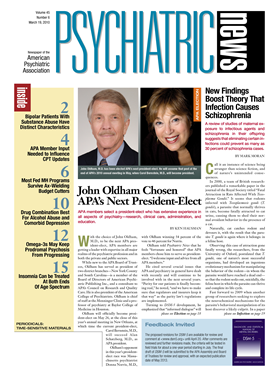Children with prenatal exposure to antidepressants show signs of delays in some but not all developmental indicators early in life, two recent European studies showed, but researchers noted as well that maternal depression during pregnancy poses its own risks for the child's mental outcomes.
In one study, children who were exposed to antidepressants during their mother's second or third trimester showed delays in motor functions at 6 months of age compared with children who had no fetal exposure to antidepressants. However, at 19 months, the difference in measurements of gross motor function was no longer significant between children with and without prenatal antidepressant exposure.
Although the children with second or third trimester antidepressant exposure were able to sit and walk 15.9 days and 28.9 days later, respectively, than children with no antidepressant exposure, these milestones were still within the normal range of development.
The children's developmental milestones, such as the ability to sit without support, move around, and perform certain tasks, were assessed using structured telephone interviews with the mothers. Depressive symptoms and antidepressant use were determined through interviews during pregnancy.
The children's other developmental milestones, including auditory and social development at six months, and cognition, gross and fine motor functioning, and language development at 19 months, were not affected by antidepressant exposure in the second and third trimesters.
The study was published in Pediatrics online on February 22 and in the journal's March print issue. The research was funded by the Lundbeck Foundation, the National Danish Research Foundation, Aarhus University, other organizations.
The researchers, led by Lars Henning Pederson, M.D., Ph.D., of the Institute of Public Health at Aarhus University in Denmark, also assessed other developmental milestones. They found no significant association between antidepressant exposure and significant developmental delays in these areas, except for an indicator of attention, at 19 months. The exception was that children with exposure to antidepressants in the second or third trimester were statistically significantly less likely to occupy themselves for at least 15 minutes at that age.
The use of antidepressants in the first trimester was not associated with any significant developmental delays compared with children without exposure.
Effects on Brain Development Suspected
The researchers noted that their findings “may suggest that human fetal brain development is susceptible to antidepressant exposure,” a phenomenon observed in animal studies.
Nevertheless, the effect on these children's motor activities was small and within the range of normal development, they pointed out; thus, the clinical significance of the delays, especially in the children's long-term development, is unclear.
Because maternal depression during pregnancy is itself a risk factor for adverse consequences for the child, the researchers compared the outcomes of children who had been exposed to antidepressants and children born to mothers who had been diagnosed with depressive disorder during pregnancy but received no psychotropic medication.
Nearly 82,000 pregnant women who gave birth from 1996 to 2002, identified through the Danish National Birth Cohort, an ongoing epidemiological study, were included in this study. Among the study participants, 415 used antidepressants during pregnancy, 489 had depression during pregnancy but did not use any psychotropic medications, and more than 81,000 met neither criterion. About 80 percent of the antidepressants taken during pregnancy were selective serotonin-reuptake inhibitors.
Untreated Depression Poses Risks
In another recently published study, researchers in the United Kingdom found that the presence of maternal depression during pregnancy was a statistically significant predictor of the children's antisocial behaviors at ages 11 and 16.
A total of 120 families were followed prospectively from the mothers' pregnancy to 16 years after they gave birth. Participating mothers were first interviewed and assessed during pregnancy. Both the parents and children were interviewed at four, 11, and 16 years after birth. The youth were considered to have antisocial behaviors if they met the DSM-IV diagnostic criteria for conduct disorder or had been arrested for certain crimes.
The authors found no significant association between the children's antisocial behavior and the recurrence of maternal depression postpartum, at one year, in early childhood, or in elementary school years.
Maternal depression during pregnancy was also associated with a fourfold increase in the risk for violent behaviors in the children compared with children of mothers who did not have depression. Violent behavior was defined by the category of aggressive conduct symptoms in DSM-IV or arrest for violent crimes. This association remained significant after controlling for family environment, mothers' smoking and alcohol use during pregnancy, and parents' antisocial behaviors (for example, parents' arrest history).
“In this sample, only 20 percent of the women suffering from antenatal depression sought help from their general practitioners, with only 4 percent referred to secondary care, and none were placed on psychotropic medication,” Dale Hay, Ph.D., a professor of psychology at Cardiff University in Wales and lead author of this study, told Psychiatric News.
The study was published in the January/February Child Development.
